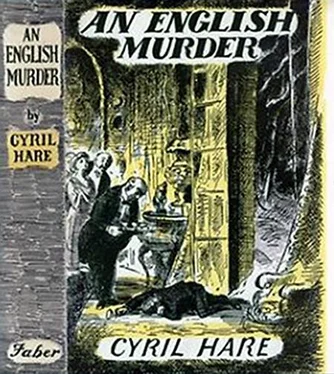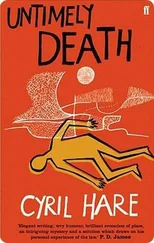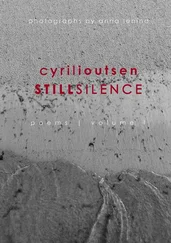"Oh—that. Yes, the drink's laid on all right."
"I hope there's enough of it, that's all," said Camilla in a sudden vicious little outburst. "I mean to drink a lot tonight. I mean to get positively, completely blotto."
"That will add enormously to your attractions."
"Well, they want adding to, don't they? I mean, they don't seem to have been very effective so far."
"On the contrary, Julius paid you a very pretty compliment, and your new Jew friend seemed to be quite overcome. Has he asked you to go back to Palestine with him yet?"
"Poor Robert!"
"I didn't know that I was in any need of pity."
"Don't you? Perhaps not—and that makes you all the more pitiful. You used to be rather a sweet person, you know, and now you've gone sour and bitter. What's happened?"
"Nothing, so far as I am aware."
"Robert, that's nonsense. A man can't change in the way you have done and not know that any thing's happened to him."
"I don't see where the change comes in. I never did like Jews or socialists and I don't like them now."
Camilla sighed impatiently. "Can't we keep politics out of it?" she asked.
"By all means. I never asked you to bring them in, did I?"
"I don't mind about your League of Liberty and Justice——"
"That's very good of you. I'll tell them when I get back to London. They'll be tremendously relieved."
Camilla brushed the interruption aside.
"You can be any damned thing you please, so long as it is you, and not this awful, cynical caricature of yourself," she persisted.
"You're talking nonsense!"
"Robert!" Camilla caught him by the sleeve. "Robert! Look at me! We've known each other pretty well all our lives— since we were children. It's no use trying to pretend to me that nothing's the matter, when anyone can see with half an eye that you're miserably unhappy! Won't you—won't you let me help you, Robert? It's not much to ask, is it? We used to be such friends—I—I'd do anything to help you. D'you understand what I mean, Robert? Anything! I simply can't stand going on like this. Look at me, for God's sake, look at me!"
"Let go of me, Camilla," said Robert through clenched teeth. "I warn you, let go!"
"Not until you've told me what has happened. Say you hate me if you like, only let me know why. God knows, I don't want to do anything to hurt you. I simply want to help. I want—I want——"
"You want, you want!" Robert had rounded on her suddenly. His powerful hands gripped her arms, his face was within a few inches of hers. "I know what you want, all right! There's no need to be so mealy-mouthed about it. You want a man.
That's what you came down here for, wasn't it? All right, now's your chance. Would you like me to lock the door now and turn out the light? I dare say we could make do on the sofa."
"Robert, you're hurting me! Let go!"
"Or perhaps you'd rather wait till tonight, when you've had a skinful of champagne to overcome your maidenly reserve? You said just now that you meant to get blotto, didn't you? I dare say that'll be best, and I can have a drop too to make things even. D'you think you can wait till then?"
"You're mad, Robert! For heaven's sake, leave go of me!"
"That's a bargain, then, my pretty. One of us will have a happy Christmas, at any rate. And just to remind you before you go——"
He kissed her three or four times, violently, brutally, crushing her lips with his.
"That will be all for now," he said as he released her. "I hope you're satisfied?"
Pale with anger, Camilla staggered away from him.
"Oh, you're hateful, hateful!" she sobbed. "You filthy beast. I could kill you for this!"
With the flat of her hand she caught him a violent blow on the face, and before he could move again had run from the room.
Chapter VI
Company in the Pantry
The butler's pantry at Warbeck Hall was, as Dr. Bottwink had pointed out to Briggs, part of the original building, whether the mythical Perkin had been responsible for its construction or no. At some period a portion of what had been in medieval times the main living-room of the house had been partitioned off to form a narrow oblong chamber, disproportionately high for its width. Only the stone-flagged floor and the tiny lancet windows cut in the massive outer wall remained to vouch for its antiquity. Its sides were lined with cupboards and shelves, on which were arranged with meticulous care silver, glasses, cleaning materials and all the apparatus of civilization as a butler sees it. Here was Briggs's domain—cold, austere and scrupulously clean—and here, having put his master to bed, Briggs, in his shirtsleeves, a baize apron tied round his ample waist, was engaged in the absorbing task of polishing the spoons and forks for the evening's dinner. The light from a naked electric bulb gleamed on his bald head. His breath steamed on the chilly air, heavy with the smell of plate polish.
He had been working for some time when the door behind him opened silently and the head of a young woman appeared behind it. She had a pretty, if undistinguished, face, disfigured by an anxious expression which had permanently depressed the corners of her mouth. Her fiery red hair glowed in contrast to the pallor of her cheeks. After a pause for observation, the newcomer finally entered the room and walked quietly up to the table where the butler was standing.
"Dad!" she breathed softly. "Dad!"
Without turning round or pausing for an instant in his work, Briggs said, "You had no call to come down here, Susan my girl. You'll catch your death of cold. I told you to stay upstairs by your fire."
"I'm sorry, Dad, but I couldn't wait to see you. Have you—have you spoken to him, Dad?"
"Yes, I've spoken to him all right."
"What did he say? What's he going to do about it?"
Briggs held a Georgian fish-slice up to the light, breathed on it and rubbed it vigorously with a piece of shammy-leather before replying.
"That I can't say exactly. We were interrupted before we could get that far. But something's got to be done, and done soon. I put that to him straight."
"Oh, what's the good of saying things like that?" the girl burst out petulantly. "That means you've let him get away with it again, and now he'll go on wriggling and wriggling and putting things off, the same as he's done before."
"All the same, I don't think he will this time," said Briggs, grimly, apparently addressing himself to the salt-spoon in his hand.
"I've a good mind to go straight off and tell his lordship," Susan continued. "That would make him sit up!"
"None of that now, my girl!" The butler spun round on his heels and faced his daughter for the first time. So fierce was his aspect that she recoiled from him involuntarily.
"I'm sorry, Dad," she faltered. "I didn't mean it, really."
"I should hope you didn't. I haven't been in this house forty-five years to be the cause of giving his lordship a shock that might send him to his grave. And if your poor mother was alive she'd say the same."
"Is he as ill as all that?"
"I don't suppose there's anybody beyond me and his lordship that knows how ill he is," said Briggs seriously. "It only wants a proper shock for him to go off like—that." He snapped his fingers, and then turned back to his work.
"It's funny, though, isn't it?" Susan observed to her father's back. "I mean, him being there and me here. It's not fair, is it? After all, I've got my rights, the same as anyone else, haven't I?"
"You've got your rights, my girl, and in good time you'll get your rights," Briggs assured her. "Now you cut along upstairs."
Susan retreated, but stopped half-way to the door.
"Dad?"
"What is it now?"
"Is it true that me and him are—sort of cousins, in a way?"
Читать дальше












